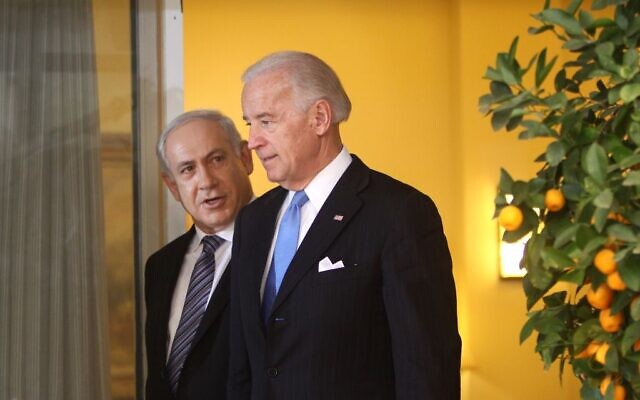Biden ‘on the verge of repeating mistakes’

THE Biden administration stands on the verge of repeating mistakes of previous US administrations by funding and enabling Palestinian rejection of Israel, ironically at the same time that an increasing number of Israel’s neighbours are embracing the Jewish state of Israel as an indigenous part of the region, author and former Labor Member of Knesset Einat Wilf told a webinar for the Australia/Israel & Jewish Affairs Council (AIJAC) on February 9.
Wilf, author of a top-selling book published in English last year, The War of Return: How Western Indulgence of the Palestinian Dream Has Obstructed the Path to Peace, told the forum that statements by the Biden administration about restoring funding to the UN’s Palestinian refugee agency UNRWA indicate that it appears to be falling into the same trap she had described in her book.
If the US goes ahead with restoring funding to UNRWA unconditionally “it would be making a conscious, active statement, which is terrible”, Wilf said.
Yet the incoming White House doesn’t appear to be overly concerned about the consequences of such a move, she added. “[Biden administration officials] are actually interested in … virtue signalling that they are the anti-Trump and that they are overhauling its policies regardless of whether they were good ones or bad ones.”
Turning to the new rapport between Arab and Muslim countries and Israel, Wilf explained that American disengagement from the Middle East that has been the policy of every president since the Iraq war, including now Joe Biden, has brought about the conditions that has built momentum towards acceptance, peace and normalisation between Israel and much of the Arab world.
“America’s disengagement from the Middle East is turning Israel away from [the] fortress [mentality that it has been forced to operate under since its creation] into how can we integrate and ultimately secure our presence in the Middle East by hopefully having a less hostile Arab and Islamic presence,” Wilf said. This is possible, she said, since more countries “are showing finally an Arab and Islamic willingness to accept Israel and sovereign Jews as indigenous in this region. And this is amazing”.
Wilf, who as a former Labor MK does not support Netanyahu’s side of politics, nevertheless credited him for building ties with Arabs and Muslims – foreign and domestically – at significant political risk.
“[Netanyahu] understood the changing geopolitics, the fact that America is getting out of the region and that Israel ultimately has to build its future in alliance with Arab and Muslim countries. And you’re even seeing it in those elections and reaching out to Israel’s Arab and Muslim citizens,” Wilf said.
Discussing next month’s Israeli elections, Wilf, without venturing a prediction on the outcome, mused that Netanyahu’s political manoeuvrings, and those of his opponents, could actually have a beneficial effect on Israeli society.
“The whole breakdown of Israeli politics left and right and Jews and Arabs, all of that is really changing. And despite all the cynicism that’s underneath it, I think it might have a very interesting, lasting legacy,” Wilf said.

comments